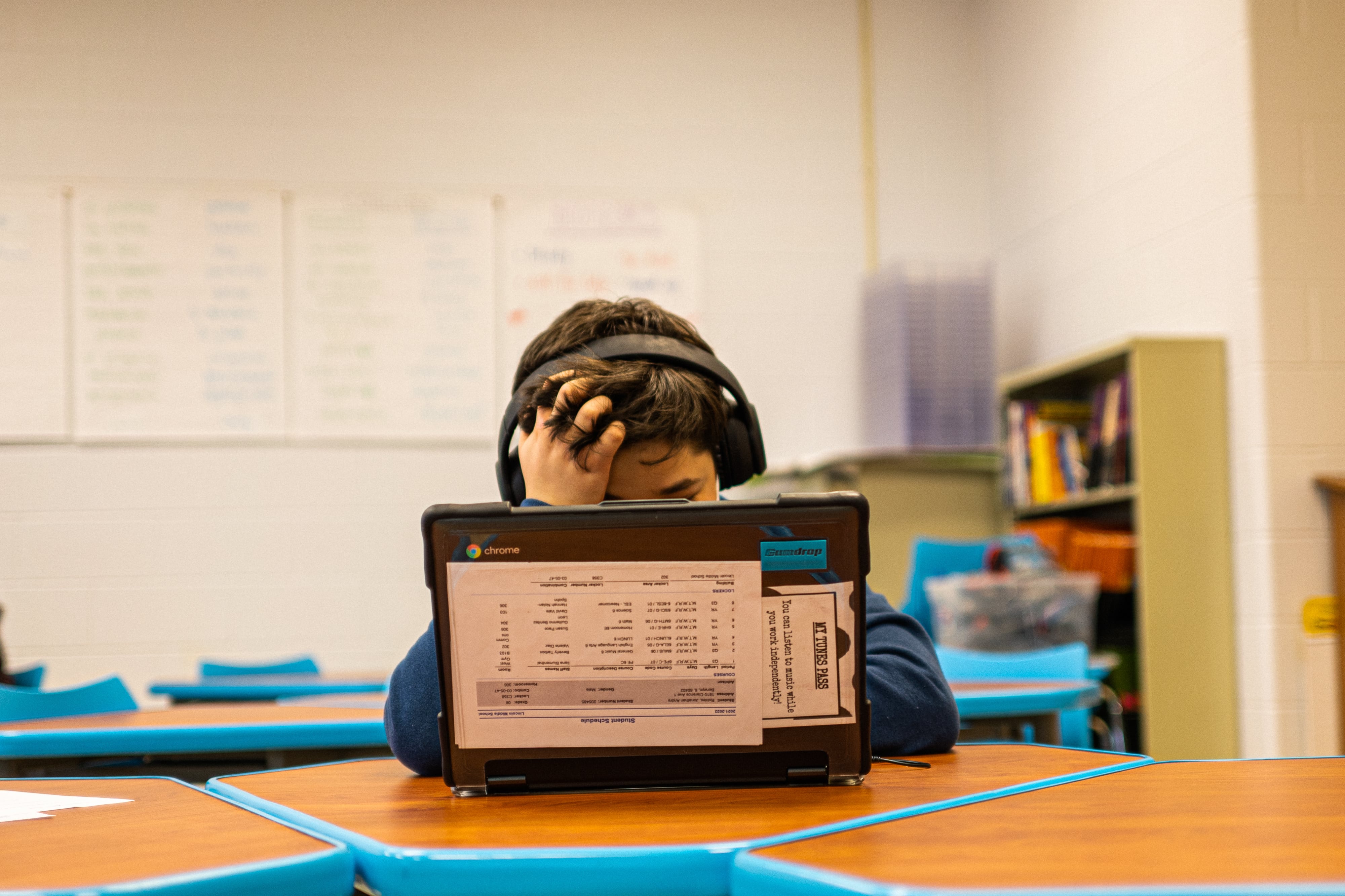In a swift reversal, New Mexico will no longer offer students virtual tutoring through Paper after state education officials said the company had failed to get enough students the academic help they needed.
New Mexico hired Paper last fall to provide on-demand virtual tutoring to students who attend high-poverty elementary and middle schools across the state. But Chalkbeat has learned that top officials at the Public Education Department, or PED, canceled the state’s contract after just three months, citing issues with how quickly Paper was able to enroll students in tutoring and how often students used those services.
“It is clear to the PED that this service is not providing the results in terms of engagement, support, or delivery of service to the State’s students,” New Mexico’s then-interim secretary of education, Mariana Padilla, wrote to Paper in a Feb. 20 letter terminating the state’s contract.
It’s unclear how many students Paper enrolled in tutoring, and the company did not respond to multiple requests for comment.
New Mexico plans to replace the company with in-person tutoring, but has yet to get that up and running — leaving many students with a gap in support at a critical time for academic recovery. The about-face marks one of the highest-profile examples yet of a retreat from on-demand virtual tutoring, a model that exploded in popularity during the pandemic as schools found it challenging to staff and schedule tutoring sessions in person.
Paper, in particular, became a go-to provider for many of the nation’s largest school districts, including in Los Angeles, Boston, and the Las Vegas area, as well as the states of Mississippi and Tennessee. But reporting by Chalkbeat and other news outlets has raised questions about the utility of Paper’s virtual tutoring — which is primarily conducted over text-based chat and does not include video or live audio — especially for younger children, English language learners, and struggling readers.
In earlier interviews with Chalkbeat, Paper’s CEO Philip Cutler said his company was aware of some districts’ concerns and had stepped up outreach and added ways for students to communicate with tutors. Paper’s promise, he argued, remained its ability to serve large numbers of students.
New Mexico’s decision suggests that hadn’t yet happened. Allison Socol, a vice president at The Education Trust, an education civil rights group, said it’s commendable that officials made a change if they realized the on-demand virtual help wasn’t working.
“That doesn’t always happen,” Socol said. “This is a good moment to take stock of the interventions that districts and schools put in place in a moment of crisis and urgency and whether those are the right things.”
As COVID relief funds dwindle, education leaders should be looking at what’s working, Socol said, as well as “what isn’t working and what should we disinvest from so that those dollars can be allocated to things that will actually make a difference for kids.”
New Mexico signed a contract in late November with Paper worth up to $3.3 million funded by federal COVID relief funds. The state asked Paper to focus on the some 220,000 students in preschool to eighth grade who attend Title I schools, which serve higher concentrations of children from low-income families.
The contract set modest goals for the company, asking Paper to enroll at least 2,200 students in tutoring by the end of this month and to tutor at least 11,000 students by the end of the contract in September 2024. The state wanted each of those students to receive at least 20 hours of tutoring.
State officials wouldn’t say how far off Paper was from meeting those targets. A spokesperson for New Mexico’s education department, Kelly Pearce, said in a statement that the “PED’s partnership with Paper did not meet the needs of New Mexico’s students. As soon as this was determined, the contract was closed.”
It’s also unclear how much money the state spent on services it now says were inadequate. Pearce declined to answer questions about how much New Mexico has paid out to Paper. In her termination letter, Padilla indicated that Paper’s performance had been an issue since the beginning of the contract and that the state had previously expressed concerns. (Leadership at the education department had also been in flux during that period.)
Elsewhere, school leaders have had similar issues. In Hillsborough County, Florida, for example, the school district got a more than $500,000 refund from Paper after the company reached only a fraction of the students it had projected.
That hasn’t been the case everywhere, though. The Mississippi education department’s contract with Paper is still in effect and the state hasn’t had any concerns about the company’s performance, spokesperson Jean Cook said in an email.
In New Mexico, Paper beat out 17 other tutoring companies to win the state contract as part of a months-long competitive process. The state said it was open to a range of tutoring providers — including in-person, virtual, or a combination of the two — but Paper edged out its competitors in large part because it said it could do the job for the lowest price.
Some observers question why New Mexico officials thought opt-in online tutoring would be a good fit in a state where internet access has improved but is still limited, and where schools serve large shares of English learners, who often have trouble using Paper’s text-based platform.
Emily Wildau, a research and policy analyst at the nonprofit New Mexico Voices for Children, says that after chronic absenteeism shot up in the state during the pandemic, many students would benefit from more consistent tutoring that’s part of their school day.
“That kind of opt-in tutoring model is really good for the kids who are already doing pretty well,” Wildau said. “It’s not going to help the kids that are the farthest behind, who need the most attention in our state and who need to be re-engaged.”
In the meantime, students and families don’t have access to any tutoring through the state’s initiative. (Though the state continues to run a separate virtual tutoring program taught by New Mexico teachers for some 375 students in algebra I.)
In January, Lisa-Ashley Dionne signed up to get tutoring through Paper for her two daughters, who attend a Title I elementary school that was eligible for the extra help. But the service went away before her kids could use it.
Dionne wanted her fourth grader, who spent her entire second grade year online, to be able to work with a tutor on her Spanish conversation skills, since she attends a dual language school. She’s hoping Paper’s replacement will be more interactive.
“I’m just hoping for more of that conversation — just the back and forth interaction where they can engage more with the tutor,” she said.
Kalyn Belsha is a national education reporter based in Chicago. Contact her at kbelsha@chalkbeat.org.






